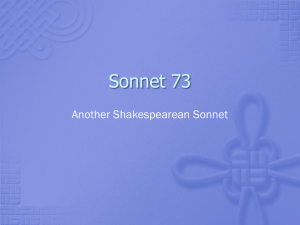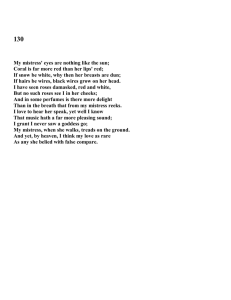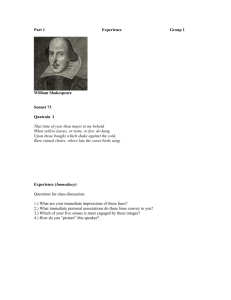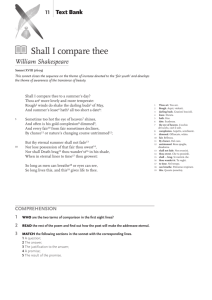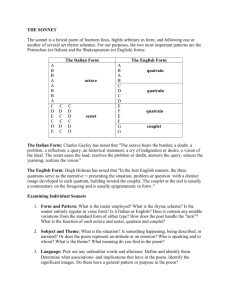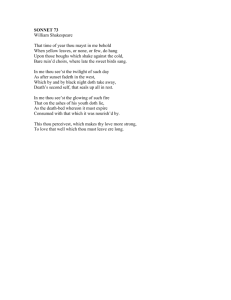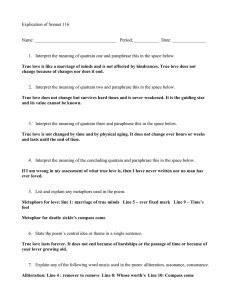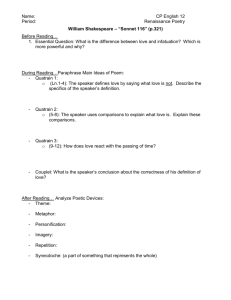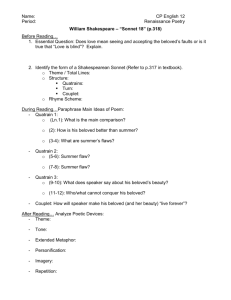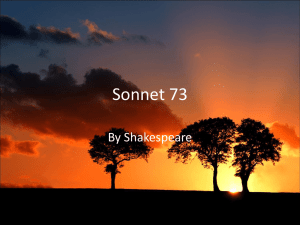Sonnet 73 Analysis: Metaphor and Theme
advertisement
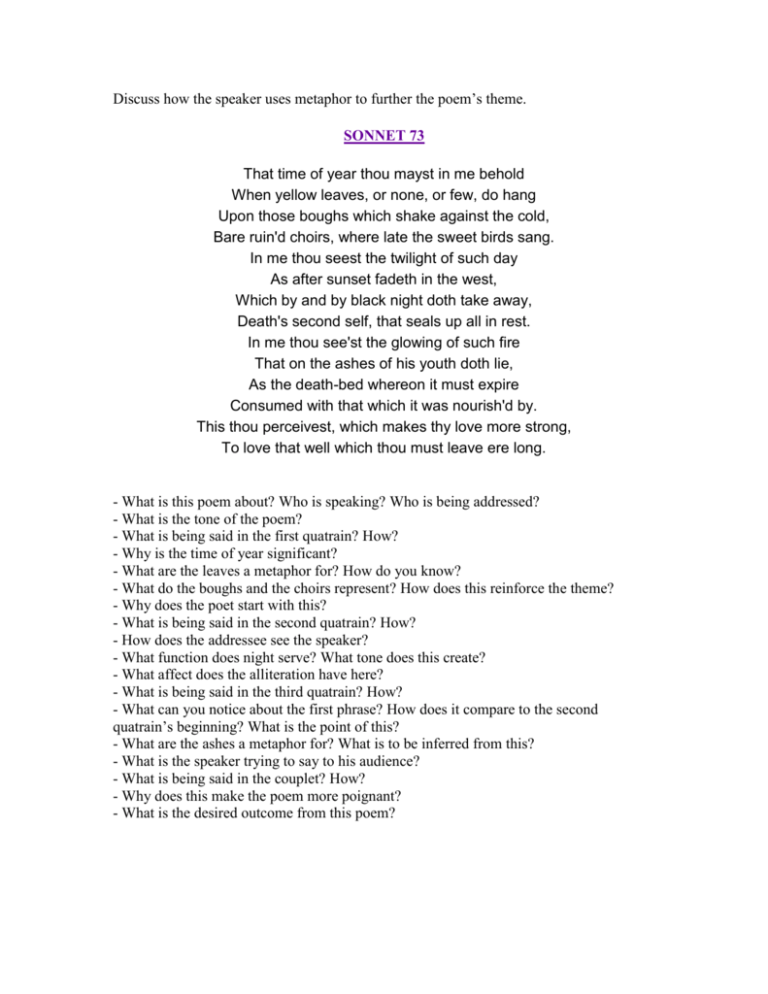
Discuss how the speaker uses metaphor to further the poem’s theme. SONNET 73 That time of year thou mayst in me behold When yellow leaves, or none, or few, do hang Upon those boughs which shake against the cold, Bare ruin'd choirs, where late the sweet birds sang. In me thou seest the twilight of such day As after sunset fadeth in the west, Which by and by black night doth take away, Death's second self, that seals up all in rest. In me thou see'st the glowing of such fire That on the ashes of his youth doth lie, As the death-bed whereon it must expire Consumed with that which it was nourish'd by. This thou perceivest, which makes thy love more strong, To love that well which thou must leave ere long. - What is this poem about? Who is speaking? Who is being addressed? - What is the tone of the poem? - What is being said in the first quatrain? How? - Why is the time of year significant? - What are the leaves a metaphor for? How do you know? - What do the boughs and the choirs represent? How does this reinforce the theme? - Why does the poet start with this? - What is being said in the second quatrain? How? - How does the addressee see the speaker? - What function does night serve? What tone does this create? - What affect does the alliteration have here? - What is being said in the third quatrain? How? - What can you notice about the first phrase? How does it compare to the second quatrain’s beginning? What is the point of this? - What are the ashes a metaphor for? What is to be inferred from this? - What is the speaker trying to say to his audience? - What is being said in the couplet? How? - Why does this make the poem more poignant? - What is the desired outcome from this poem? PARAPHRASE OF SONNET 73 In me you can see that time of year When a few yellow leaves or none at all hang On the branches, shaking against the cold, Bare ruins of church choirs where lately the sweet birds sang. In me you can see only the dim light that remains After the sun sets in the west, Which is soon extinguished by black night The image of death that envelops all in rest. In me you can see the glowing embers That lie upon the ashes remaining from the flame of my youth, As on a death bed where it (youth) must finally die Consumed by that which once fed it. This you sense, and it makes your love more determined To love more deeply that which you must give up before long. Potential Thesis Statement: In Sonnet 73, the speaker indicates he feels as if he does not have much longer to live through the metaphoric imagery of a wintry bough, twilight’s afterglow, and a fire’s dying embers – all of which suggest the speaker’s impending death.
